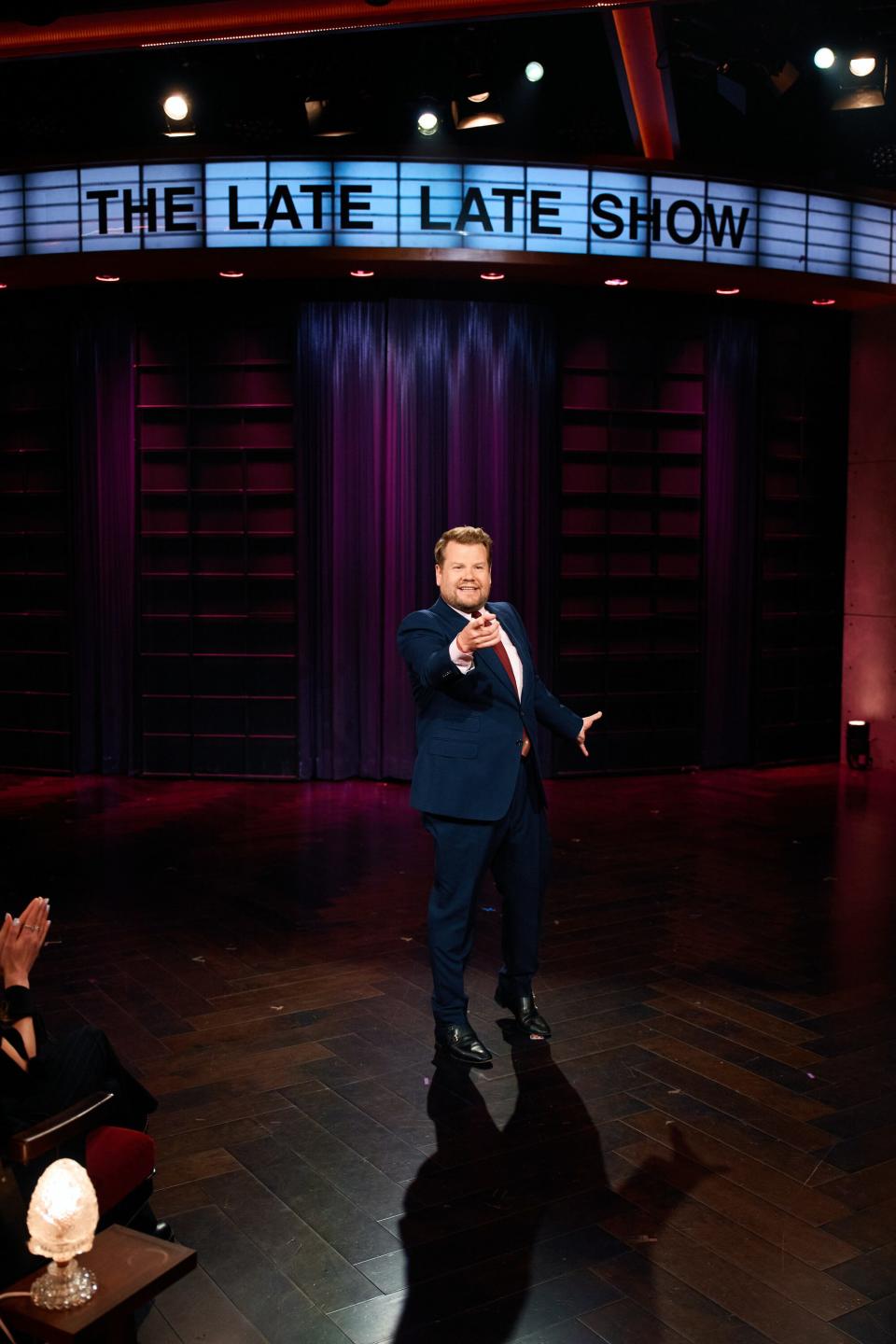James Corden said goodbye with Biden, Tom Cruise and Adele, and helped change late-night TV
Late-night TV just lost its favorite lightning rod.
There is no host quite as polarizing as James Corden. A populist who brings platinum recording artists down to Earth singing along in the car, he also generates viscerally spiteful reactions online (akin to Anne Hathaway's "Hathahaters"). And that was before he was reportedly so offensive to the waitstaff at New York eatery Balthazar that he was temporarily banned from the establishment.
Corden, 44, signed off from his American TV home, CBS's "The Late Late Show with James Corden," for the last time Thursday night after eight years of "Carpool Karaoke," fawning interviews and musical performances with Lin-Manuel Miranda and Emily Blunt.

The finale, and a prime-time "Karaoke" celebration, featured a cameo from President Joe Biden, a bit with fellow late-night hosts Jimmy Fallon, Stephen Colbert, Jimmy Kimmel, Seth Meyers, Trevor Noah and David Letterman, an extended sequence of Tom Cruise joining Corden to perform "Hakuna Matata" as Timon and Pumbaa in "The Lion King" at a Hollywood theater, and an emotional "Karaoke" segment with Adele, who wakes him up with crashing cymbals before the ride.
And while it might seem like he could be replaced by any other white guy named James or Jimmy, it is worth remembering just what he has done to mold and modernize the late-night talk show. Along with similarly giggly host Jimmy Fallon on NBC's "Tonight Show," Corden has dominated the genre with viral clips, silly games and few substantive interviews.
Since his American debut in 2015, the British actor has flourished, regularly competing with NBC's "Late Night with Seth Meyers" in the ratings and racking up YouTube views.
Corden's affable, uncontroversial persona helped him ride the wave of the Trump administration and the COVID-19 pandemic without taking too many stands. His blandness has a broad appeal: He took a time slot previously occupied by an irreverent, experimental comedian, Craig Ferguson, and made it nice, tidy and mainstream. He booked bigger names and had bigger ratings and a bigger cultural influence, even if it was just from singing along with the radio.
More: Adele, James Corden get emotional as she surprises 'Carpool Karaoke' host for final episode
Let's talk about Carpool Karaoke, Corden's biggest achievement. While it's old news now, when it made its debut it was a truly canny segment that only Corden could create. An actor who occasionally worked in film and TV through his late-night tenure ("Cats," "The Prom"), Corden had street cred (or maybe Hollywood walk of fame cred) with celebrity guests that many comedians couldn't claim. He made superstars feel at ease. His British awkwardness made everyone from Mariah Carey to first lady Michelle Obama seem downright chill. Once Karaoke became its own franchise (and an Apple TV+ series), it became a self-feeding phenomenon.
Though his jokes could be hammy, Corden made some magical TV moments. Two jump out: a "Karaoke" segment with Paul McCartney that offered Beatles nostalgia and history to rival Peter Jackson's documentary; and an earnest rebuke of Bill Maher's shaming of fat people that few other major celebrities cared to offer. When he made the effort, he could be as earnest and affecting as Jimmy Kimmel or Meyers making an impassioned plea. He just didn't choose to do it often.
Compared to the long tenures of legends like Johnny Carson and David Letterman, Corden's eight years on CBS seems like a blip on the late-night landscape. But he did more than fill a chair. And I wouldn't be surprised if future hosts emulated his nonthreatening, everyman act.
And we'll always have Adele, singing in that car, to remember him by.
This article originally appeared on USA TODAY: James Corden signs off 'Late Late' with help from Tom Cruise, Adele
